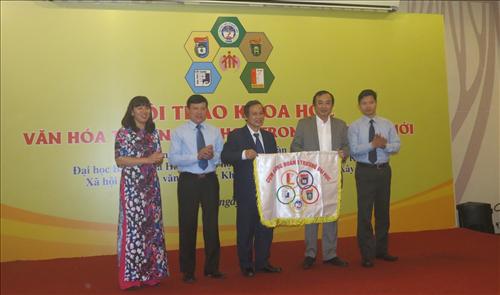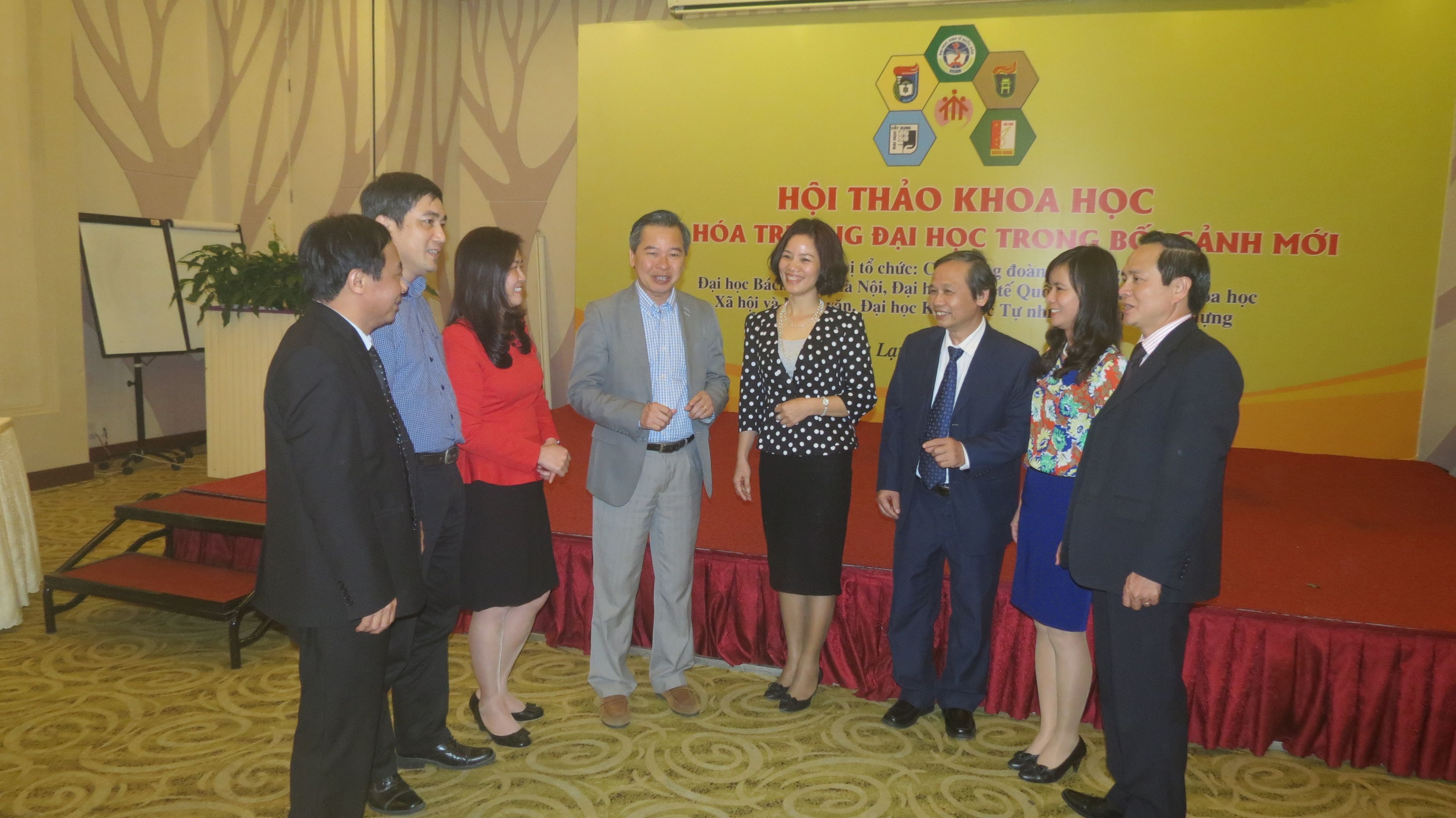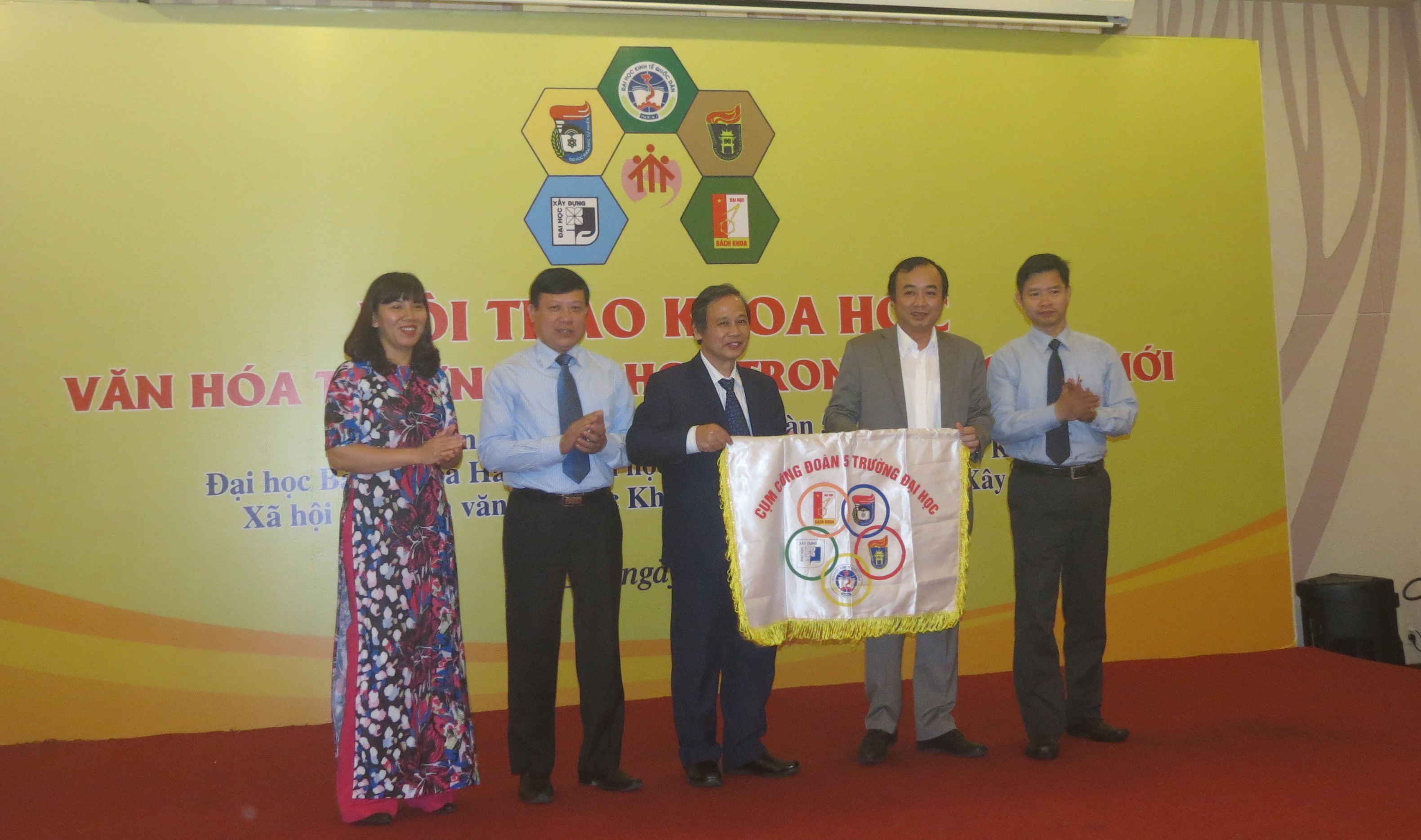
University culture - diverse perspectives
Discussing the intrinsic values of culture in universities, the paper "Communication Contributes to the Dissemination of Organizational Culture" by Assoc. Prof. Dr. Phan Thi Thanh Thao (Trade Union of the University of Technology) argues that culture is the core value of an organization, establishing beliefs about correct behavior, including: Rituals (organizing events that demonstrate core values); Stories (narratives about events to convey core values); Heroes (characters who have and are currently demonstrating core values); Symbols (language and other symbols that convey core values). The paper also affirms that communication plays an indispensable role in building these cultural values of an organization.
Dr. Ho Ngoc Khoa (Trade Union of the University of Civil Engineering) emphasized that the traditional cultural values that the University of Civil Engineering possesses today are the foundation for stability and sustainable development. The development process of the University is the crystallization of core values, becoming fundamental and distinctive cultural values within the University's traditional cultural value system, such as: organizational capacity, leadership, and vision of the leadership team; spirit of solidarity and mutual support; self-reliance and adaptability to all circumstances and changing conditions; courage and resilience in overcoming sacrifices and losses; and domestic and international diplomatic capabilities.
Associate Professor Dr. Dang Xuan Khang (Trade Union of the University of Social Sciences and Humanities) addressed the issue of culture within universities, but approached it from the perspective of ethical principles in the profession for university lecturers. This is currently a "hot" issue in society, as the dark sides of the market economy have impacted a segment of educators, turning education into a commodity, negatively affecting the quality of training and eroding the ethics of educators. The presentation analyzed five basic ethical principles for university lecturers, including: political integrity; lecturers must have sufficient professional and pedagogical competence; the relationship between lecturers and students; respect for colleagues; and contributing to the development of the university. Regarding relationships with students, the author emphasizes: “Lecturers must avoid ‘double’ relationships with students that could negatively impact student development or lead to bias or perceived bias towards students. Lecturers should only maintain relationships with students for pedagogical purposes and academic requirements.” At the same time, lecturers have a responsibility to conduct assessments in a fair, open, and transparent manner, consistent with the objectives of the course.
Also discussing the issue of university culture from the perspective of the teacher-student relationship, Dr. Nguyen Thi Huyen (Trade Union of the National Economics University) offered the following solutions: The university needs to invest more in academic advising, because in reality, after graduation, these are the teachers with whom students maintain the longest-lasting relationship. Teachers should be encouraged to use social media to share with students, helping them understand each other better, fostering closer and friendlier relationships, and thus better grasping students' thoughts, aspirations, and other needs. The relationship between teachers and students is always seen as a bridge and a source of encouragement, motivating students to participate more enthusiastically in their training and future career development.

Assoc. Prof. Dr. Pham Quang Minh (Vice Rector) and delegates from the Trade Union of the University of Social Sciences and Humanities exchange views on the sidelines of the Conference/Photo: DL
Trade unions play a pioneering role.
At the workshop, all opinions affirmed the crucial role of the Trade Union in building and promoting culture within the university. This is because the Trade Union has the ability to unite and connect its members, and implement effective and widespread common activities. By successfully fulfilling this task, the Trade Union clearly demonstrates its pioneering role, working alongside Party and government agencies to contribute to improving the effectiveness of the university's operations.
Professor Pham Quang Trung (Vice Rector, National Economics University) affirmed that the achievements of the National Economics University are significantly contributed by the Trade Union organization. In this development process, the topic of building a culture within universities, although not new, holds an extremely important position and requires proper guidance from all levels of leadership. Building a culture within universities is a crucial impetus for a new stage of development. Activities like this workshop will contribute to promoting new awareness and concrete actions among universities. Therefore, university leaders need to create all possible conditions to ensure that the Trade Union activities of the five universities become increasingly cohesive and practically effective.
Associate Professor Pham Quang Minh (Vice Rector of the University of Social Sciences and Humanities) pledged to create conditions for the further development of trade union activities. He believes that the networking activities of the trade unions of the five universities, maintained over the past 27 years, are a remarkable achievement. The trade unions have demonstrated their pioneering role by addressing one of the prominent issues in university operations in the modern context. This is because university culture has increasingly become a core value, a "soft" value that drives development and builds the brand of the university.

Assoc. Prof. Dr. Dang Xuan Khang (Chairman of the Trade Union of the University of Social Sciences and Humanities) receives the flag to host the next cluster conference of trade unions of 5 universities/Photo: DL
Associate Professor Dr. Nguyen Trong Hoai (Vice Rector of the University of Economics Ho Chi Minh City) shared practical experiences drawn from his university's activities. He suggested that to build a good, standardized cultural environment in universities, the Trade Union needs to focus on core elements: respect for teachers and mentors, ethical conduct in examinations and studies, fostering a desire for freedom to create academic value, encouraging good research and teaching, promoting innovation and integration… Among these, the highest goal in university culture is to promote creativity, train individuals with good work capacity, good ethics and character, and a desire to contribute to the community…
Author:Pham Dinh Lan
Newer news
Older news